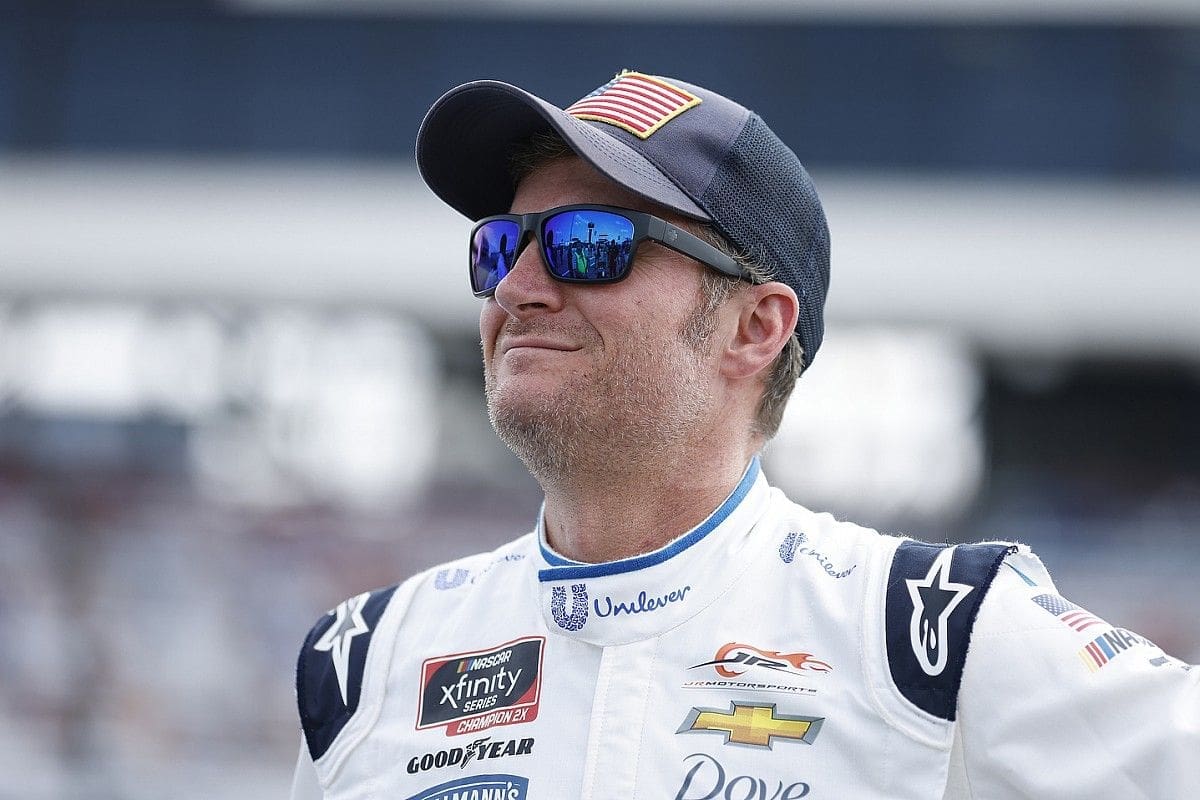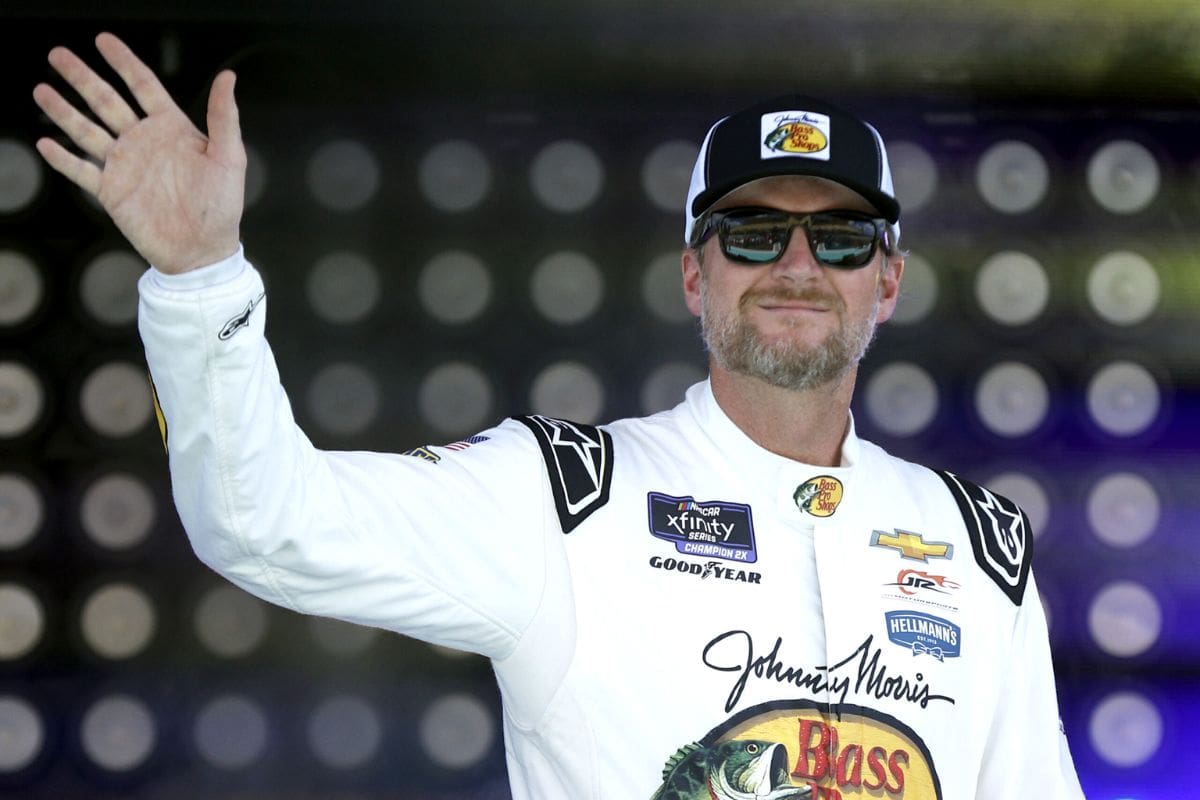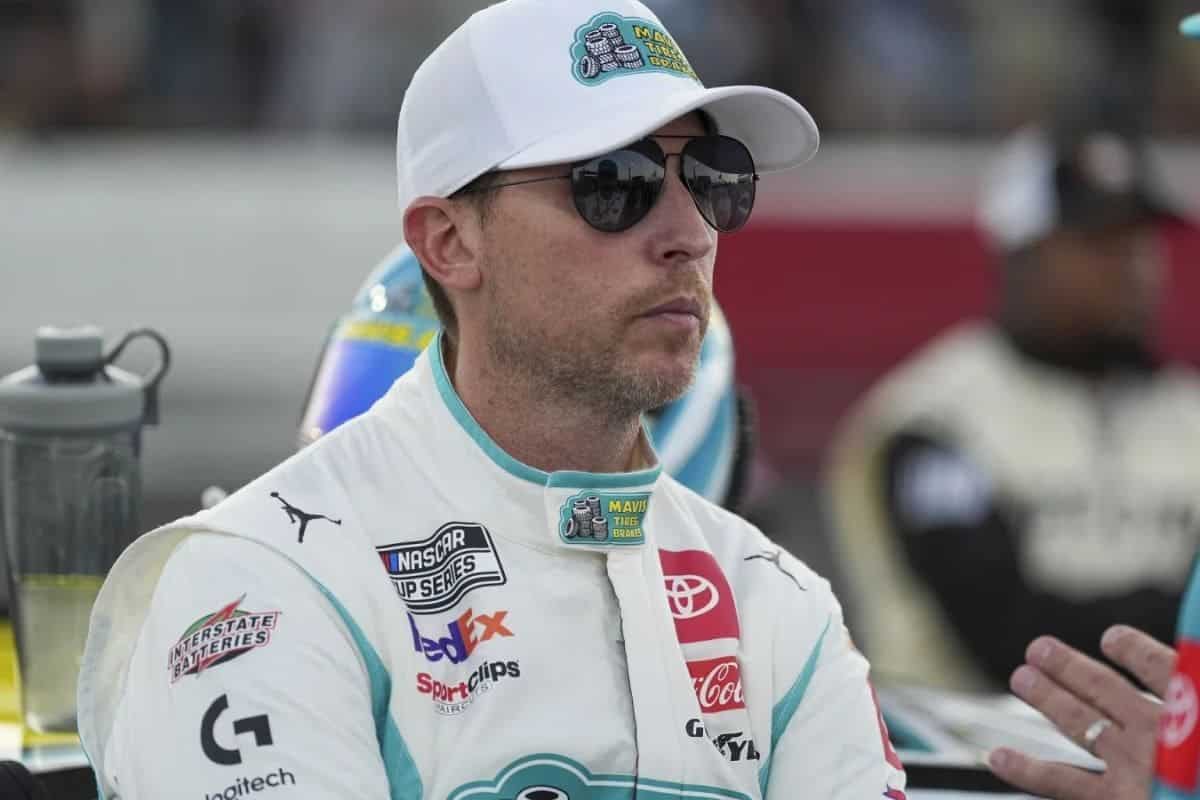Dale Jr. Criticizes NASCAR’s Key Decision: The recent critique by Dale Earnhardt Jr. on NASCAR’s decision to implement non-competitive pit stops at New Hampshire has sparked significant debate within the racing community, raising questions about the balance between safety and competitive integrity. Earnhardt Jr. argues that such decisions undermine the sport’s foundational principles of fair play and meritocracy, potentially altering team strategies and the general competitive landscape. This criticism not only invites an examination of NASCAR’s regulatory consistency but also prompts a deeper look into how these decisions affect the sport’s future. What underlying factors could have driven NASCAR’s controversial move?
Key Takeaways
- Dale Earnhardt Jr. criticized NASCAR’s decision on non-competitive pit stops, claiming it undermined the sport’s integrity.
- He believed the decision disrupted planned team strategies and raised concerns about regulatory consistency.
- Earnhardt Jr. emphasized the need to uphold competitive fairness in NASCAR.
- He compared the situation to past experiences at Pikes Peak and called for transparent decision-making.
- Earnhardt Jr. questioned the impact of the decision on NASCAR’s meritocratic nature.
Introduction to Dale Earnhardt Jr.’s and Denny Hamlin’s Concerns
Amid growing concerns over the integrity of competitive racing, Dale Earnhardt Jr. and Denny Hamlin have openly criticized NASCAR’s controversial decision to implement non-competitive pit stops during the rain-delayed USA Today 301 race at New Hampshire Motor Speedway. This decision, which allowed drivers to refuel their cars during a race restart, has sparked significant debate regarding its implications on the sport’s competitive balance.
Dale Earnhardt Jr., widely respected for his profound understanding of the sport, has expressed that the ruling undermines the crucial spirit that defines NASCAR. Earnhardt Jr.’s concerns center around the notion that permitting non-competitive pit stops grants an unfair advantage to certain drivers, thereby disrupting the natural progression of the race. He argues that the integrity of the competition was compromised, as strategies meticulously planned by teams were rendered irrelevant by the sudden alteration in rules.
This sentiment is echoed by many within the racing community who view such decisions as harmful to the sport’s authenticity. The principle of competitive equity, wherein each driver and team must rely on their strategic acumen and adaptability within the bounds of the race’s established rules, is a cornerstone of NASCAR. Deviating from this principle, according to Earnhardt Jr., risks alienating both participants and fans who value the traditional competitive framework.
Moreover, the decision to allow refueling during the restart, in the context of a rain delay, raises questions about the consistency and predictability of NASCAR’s regulatory actions. Earnhardt Jr.’s critique underscores a broader concern about maintaining a level playing field, which is crucial for the sport’s credibility and long-term appeal. His analysis calls for a re-evaluation of NASCAR’s approach to rule enforcement, emphasizing the need for decisions that uphold the integrity and competitive fairness of the sport.
Denny Hamlin’s Perspective
Reflecting on the implications of NASCAR’s decision, Denny Hamlin articulated his frustration, particularly highlighting how the rule change unfairly advantaged drivers who were low on fuel at the front of the pack. Hamlin, piloting the No. 11 Toyota Camry, found himself in a strategic quagmire as the modifications effectively nullified the competitive edge he had maintained by managing his fuel judiciously. Positioned in the bronze place with adequate fuel reserves, Hamlin perceived the ruling as a mechanism that inadvertently rewarded less prudent fuel management.
The core of Hamlin’s discontent lies in the disruption of the competitive balance. By alleviating the pressure on teams to execute precise pit strategies under normal racing conditions, NASCAR’s decision undermined the meritocratic nature of the sport. Hamlin’s team had meticulously planned their fuel strategy to secure they could sustain their position without the need for an unscheduled pit stop. However, the decision to ease the fuel constraints for leading drivers reshuffled the competitive order, favoring those who had not been as strategic.
From an analytical perspective, Hamlin’s frustration underscores a broader concern within the racing community about the integrity of competition. The rule change, perceived as an external intervention, raises questions about the consistency and fairness of regulatory decisions. For Hamlin, the essence of NASCAR competition lies in the ability of teams to utilize skill, strategy, and resource management to outmaneuver rivals. The decision at New Hampshire, in his view, compromised this fundamental principle, creating an uneven playing field that detracted from the sport’s competitive essence.
Therefore, Hamlin’s perspective reflects a deeper critique of regulatory practices and their impact on race outcomes.
Dale Earnhardt Jr.’s Commentary
Building on Hamlin’s critique, Dale Earnhardt Jr., on his podcast The Dale Jr. Download, stated similar concerns regarding NASCAR’s decision-making, drawing parallels with his own racing experiences at Pikes Peak. Earnhardt Jr. clearly recalled an incident where NASCAR’s intervention at Pikes Peak created a reset in competitive balance among teams by permitting additional sets of tires.
“I do have some questions about why they allowed everyone to fuel their cars. To Denny Hamlin’s point on his podcast, you had a lot of guys that were in a bad tough situation, fuel wise, that got bailed out by NASCAR allowing everyone to fuel their cars on pit road. That was probably a decision made out of safety by NASCAR. And I think they should absolutely prioritize safety. But it certainly… Don’t give you a… Sitting there with an advantage, fuel-wise, while… Others were at a disadvantage in front of you.”-(dale)
Earnhardt Jr. acknowledged the significant safety rationale behind NASCAR’s decision, a perspective that is vital in any motorsport. However, he expressed reservations about the implications for competitive equity. By leveling the playing field through such interventions, NASCAR inadvertently disrupts the natural competitive dynamics that teams work meticulously to cultivate. Earnhardt Jr. highlighted how, from a driver’s standpoint, unexpected regulatory changes can be both a boon and a bane, altering race strategies and potentially disadvantaging those who have managed their resources judiciously.
The veteran driver emphasized the delicate balance NASCAR must strike between ensuring safety and maintaining fair competition. He pointed out that while safety is paramount, the timing and nature of interventions could unfairly shift race outcomes. In his analytical commentary, Earnhardt Jr. underscored the importance of consistency and predictability in rule enforcement, suggesting that NASCAR’s decision-making process might benefit from a more transparent and consultative approach with drivers and teams.
Earnhardt Jr. called for a nuanced evaluation of NASCAR’s policies, advocating for decisions that uphold both safety and the integrity of competitive racing. His insights offer a compelling critique from a seasoned racer’s perspective, adding depth to the ongoing discourse on NASCAR’s regulatory strategies.
NASCAR’s Safety Decision
NASCAR’s recent decision to permit a non-competitive pit stop during the race restart at New Hampshire underscores the organization’s dedication to prioritizing driver safety amidst unpredictable weather conditions. This choice, while contentious among some fans and drivers, reflects a strategic focus on safeguarding against risks associated with fuel shortages, which can lead to accidents and impact race integrity.
“We were in great, great shape with about, you know, I don’t know, 180 laps to go. NASCAR decided to get all the teams and other sets of tires and bailed out all the teams.They put themselves in a bad spot. And then there we are having given up all that track position and we can’t get it back because they saved all the teams around us. I was reminded about that particular day at this moment when they allowed the other cars to fuel.”-(dale jr.)
Analyzing the decision, it is clear that NASCAR’s primary intention was to prevent scenarios where drivers might be compelled to continue laps with insufficient fuel due to rain delays. The potential hazards of running out of fuel on a high-speed track are significant, including the risk of catastrophic mechanical failures and increased likelihood of collisions. By allowing a non-competitive pit stop, NASCAR aimed to guarantee all competitors had adequate fuel to safely navigate the remaining race distance.
Seeing some teams get bailed out after the red flag reminded Dale of a race at Pikes Peak. 🛢️ pic.twitter.com/b1Mx0HQiiS
— Dirty Mo Media (@DirtyMoMedia) June 26, 2024
This proactive approach also highlights NASCAR’s adaptive governance, where safety protocols are dynamically adjusted in response to real-time conditions. The move to implement a non-competitive pit stop, although unconventional, demonstrates a flexible regulatory framework designed to address the complexities of race-day management under adverse weather.
Critically, this decision also emphasizes the broader implications of weather-related interruptions in motorsports. Beyond fuel considerations, unpredictable weather can alter track conditions, affecting tire performance and vehicle handling.
Looking Ahead for Denny Hamlin
As Denny Hamlin prepares for his next challenge at Nashville Superspeedway, his impressive historical performance at the track, highlighted by an average finish of 10.2, positions him favorably to capitalize on the momentum from this season. Hamlin’s ability to consistently perform at Nashville underscores his adaptability and strategic acumen, pivotal assets as he aims to solidify his standings.
Hamlin’s approach to the upcoming race will likely be influenced by several key factors:
- Track Familiarity: Hamlin’s previous experiences at Nashville Superspeedway provide him with valuable insights into the track’s unique characteristics, offering a strategic advantage over less experienced competitors.
- Current Form: Maintaining his strong performance this season, Hamlin has demonstrated resilience and skill, vital qualities for handling the challenges posed by the high-speed demands of Nashville.
- Team Dynamics: The synergy within Hamlin’s team will be pivotal, as effective communication and precise pit strategies could make the difference in securing a top finish.
- Adaptation to Changes: Given the ongoing debates about NASCAR’s balance between safety protocols and competitive fairness, Hamlin’s ability to adapt to any regulatory changes or unforeseen circumstances will be critical.
While the incident at New Hampshire has reignited discussions about NASCAR’s decision-making, Hamlin’s focus will surely be on leveraging his strengths and continuing to improve his performance. His historical success at Nashville, combined with his current form, suggests that he is well-positioned to maneuver the complexities of the upcoming race.
As he looks ahead, Hamlin’s strategic approach and track familiarity could be the key factors that enable him to excel, further cementing his status as a formidable contender this season.
News in Brief: Dale Jr. Criticizes NASCAR’s Key Decision
Earnhardt Jr.’s and Hamlin’s criticisms show the importance of maintaining competitive integrity and transparency in NASCAR’s regulatory decisions. The concerns raised highlight potential inconsistencies with the sport’s meritocratic values and emphasize the need for fairness in decision-making processes.
As NASCAR navigates future decisions, it must balance safety considerations with the imperative to uphold the competitive spirit that defines the sport. Addressing these issues is vital for sustaining trust and fostering a fair competitive environment.
ALSO READ: Dale Earnhardt Jr Displeased With Kyle Busch’s Treatment



